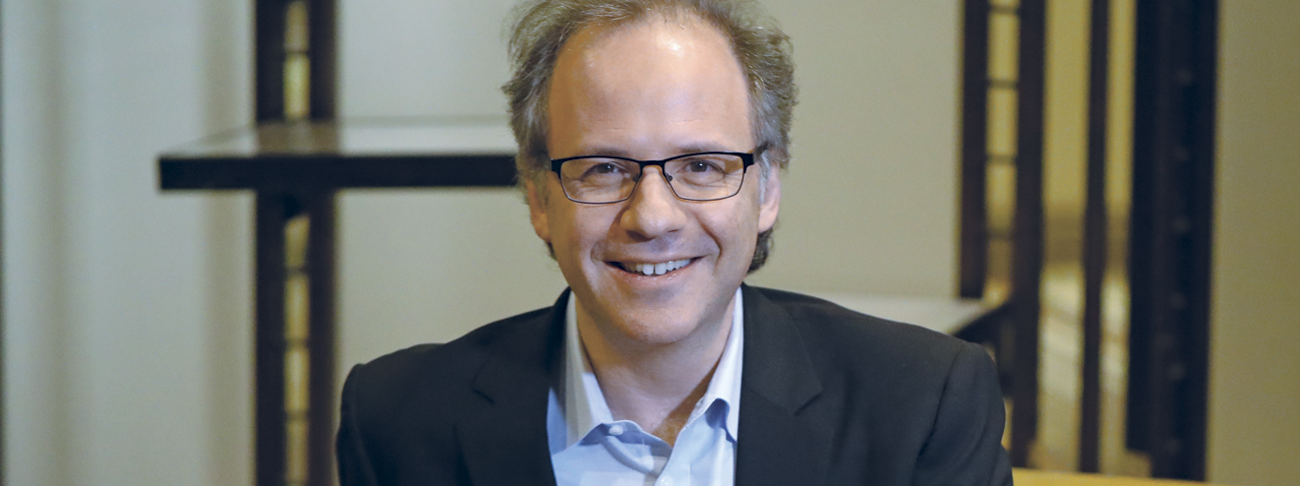
Michael Geist is a law professor at the University of Ottawa and holds the Canada Research Chair in Internet and E-Commerce Law. Geist is also a syndicated columnist on new technology and its legal ramifications, the editor of several books on copyright as well as several monthly technology law publications, and authors a popular blog on the Internet and intellectual property law issues.
In 2012, a series of decisions by the Supreme Court of Canada, along with amendments to the Copyright Act of Canada in the same year, affirmed certain rights for students, teachers and researchers. Why was this important?
There was a significant shift in the way we understood the law, recognizing that copyright is about striking a balance, and includes the rights of users and creators like students and teachers within the educational community. The notion of users’ rights had been dismissed by publishers, but the Supreme Court has been consistent in emphasizing the balance between users’ rights and creators’ rights. In practice, that has meant that fair dealing — the right to copy a portion of works without payment or permission for purposes such as education, research or private study — is a user’s right that should be interpreted in a broad and liberal manner.
What’s your opinion of the new exceptions to copyright that were created by the government in 2012?
I think the government established a forward-looking, innovative approach with the 2012 reforms. The exception for non-commercial, user-generated content facilitates the kind of mash-up and remixed creativity that you see today, and the law made it clear it’s perfectly lawful both to create and to host such content. The Internet exception for education provides assurance that using material available online in the classroom is perfectly lawful, without any additional permissions to do it, and you see it actively used today. Changing the statutory damages rule to create a $5,000 cap on liability for non-commercial cases (as opposed to $20,000 per infringement for commercial content) was very important. It has changed the risk analysis for educational institutions where previously there was a real fear of getting it wrong, which oftentimes had a chilling effect.
York University is currently appealing a federal court decision that found York withheld copyright fees owed to the content owner cartel, Access Copyright. If fair dealing is now established in law, why is this happening?
Access Copyright has argued for years that fair dealing isn’t as broad as what the Supreme Court has said. They’ve lost those arguments consistently, whether at the Supreme Court, the Federal Court of Appeal, or the Copyright Board. The York case is an outlier, the only case of its kind, which reflects one judge’s opinion and is now subject to appeal. I don’t think it’s had much, if any, chilling effect because most institutions are satisfied that current guidelines and practices are consistent with what the Supreme Court says, and are carrying on.
Access Copyright and publishers argue that fair dealing is killing their business. You’ve argued this is a myth. Why?
The disinformation campaign around fair dealing and what is happening within education is so damaging. Data clearly shows that institutions are spending millions of dollars on e-books for use in perpetuity, and on databases which allow use in course materials. Access Copyright and publishers have been very active on this issue with a lot of rhetoric about infringing copying, while seemingly ignoring the reality that licensing expenditures have increased since 2012. It’s absolutely essential to get the facts out, and for the education community to speak up. If the publishing business and revenues from copyright are changing, it’s a function of major shifts that are taking place from a technological perspective, not fair dealing.
The federal government will conduct a mandatory 5-year review of the Copyright Act this year. What’s at risk?
The benefits from the 2012 balanced approach is at risk, both with respect to the misinformation campaign on fair dealing and lobbying efforts to extend the term of copyright (currently life of the author plus 50 years), which would lock works down for an additional 20 years. Given we remain reliant upon many public domain materials, historians being an obvious example, but also broadly across our educational institutions, ensuring no further extension remains an important issue.
Students pay high prices for textbooks, and the practice of “torrenting” or illegally sharing copyrighted content online is not unknown, as they try to avoid the heavy costs. How can the education community address this?
No one condones piracy. But there is real concern about textbook cost and how it impacts students. The answer lies in increasing emphasis and investment in open access to educational materials. The government of Ontario has invested millions of dollars through eCampus Ontario, which is saving hundreds of thousands of dollars for students. Fair dealing plays a role in terms of the creation of these materials, and investing and shifting toward those materials has great cost saving and pedagogical benefits.